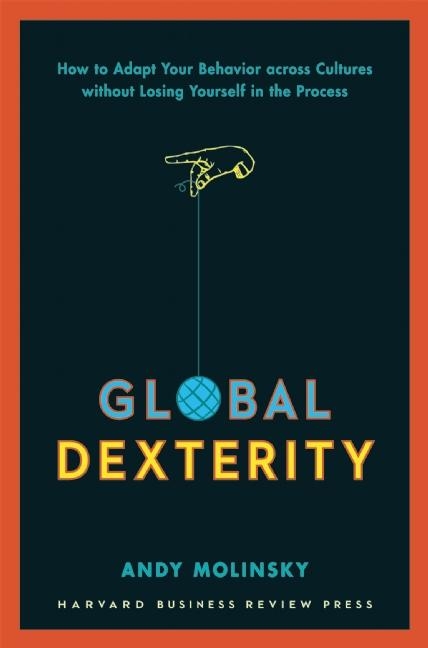Global Dexterity
March 27, 2013
While reading Andy Molinsky's new book Global Dexterity, I was reminded of an experience I had shortly after starting my first job as a working professional. I had been on the job for about a month. A colleague in my department was turning 30, so we were celebrating in a vacant office with some grocery store cake.
 While reading Andy Molinsky's new book Global Dexterity, I was reminded of an experience I had shortly after starting my first job as a working professional. I had been on the job for about a month. A colleague in my department was turning 30, so we were celebrating in a vacant office with some grocery store cake. Standing around the table in this cramped and florescently-lit office, the conversation turned to the topic of a staff member who had been let go before I was hired. There were jokes made, and the general sentiment toward the woman in question was negative. Despite the fact that I didn't know her and hadn't worked with her, I also made a comment (not a joke, simply a comment) I thought was fine and in keeping with the overall tone of the conversation. I was immediately and publicly rebuked by an older colleague, who told me I didn't know the woman and that I was being disrespectful. At the time I was embarrassed, but I feel now like I could have gained from what Molinsky lays out in this very useful book.
Global Dexterity sells itself as a guide for adapting your behavior across cultures. My initial thought when reading the introduction was to the point that the book would be narrowly focused on the more obviously global differences: US-born professionals working in India or Japan. And Molinsky does touch on that, since it's an important part of what we think about when we think about working across cultures. But there is also this broader, more universal application to the concept of global dexterity. The book defines global dexterity this way:
While reading Andy Molinsky's new book Global Dexterity, I was reminded of an experience I had shortly after starting my first job as a working professional. I had been on the job for about a month. A colleague in my department was turning 30, so we were celebrating in a vacant office with some grocery store cake. Standing around the table in this cramped and florescently-lit office, the conversation turned to the topic of a staff member who had been let go before I was hired. There were jokes made, and the general sentiment toward the woman in question was negative. Despite the fact that I didn't know her and hadn't worked with her, I also made a comment (not a joke, simply a comment) I thought was fine and in keeping with the overall tone of the conversation. I was immediately and publicly rebuked by an older colleague, who told me I didn't know the woman and that I was being disrespectful. At the time I was embarrassed, but I feel now like I could have gained from what Molinsky lays out in this very useful book.
Global Dexterity sells itself as a guide for adapting your behavior across cultures. My initial thought when reading the introduction was to the point that the book would be narrowly focused on the more obviously global differences: US-born professionals working in India or Japan. And Molinsky does touch on that, since it's an important part of what we think about when we think about working across cultures. But there is also this broader, more universal application to the concept of global dexterity. The book defines global dexterity this way:
The capacity to adapt your behavior, when necessary, in a foreign cultural environment to accommodate new and different expectations that vary from those of your native cultural setting. [...] Global dexterity is a critical skill for anyone from any culture attempting to function successfully in today's global environment.And again, the obvious application is to the most commonly-used definition of 'foreign': other countries. But there are other kinds of foreignness that we perhaps forget about when we think of the workplaces inside of a single country. My experience as a 'disrespectful' new hire was a result of my failure to adapt to the environment I was working in. Anyone new to the working world will find him or herself in the same position; every workplace has its own culture and decoding that culture is essential to your professional and social success there. The rise of the 'solopreneur' and the freelance marketplace also speaks to the importance of global dexterity among professionals. As a freelancer or consultant based in Manhattan, you might find yourself in another world when you're working on site in Nebraska. The possibilities for cultural foreignness can't be accounted for before the fact, so it's that much more important to be adaptable, or dexterous. Global Dexterity presents a six dimensional approach for doing what Molinsky calls 'diagnosing the cultural code', that is, figuring out how to behave in this new culture. The ample research done for this book is made evident by the dozens of real case studies presented to illustrate the ways in which immersion into a new culture can be a challenge. Viewing the workplace through the lens of Molinsky's six-dimensional approach can ease that challenge. This book is a quick and easy-to-understand resource for anyone who might find himself in a remotely foreign culture. It might simply save you some unneeded embarrassment, or it might go as far as saving your job.

